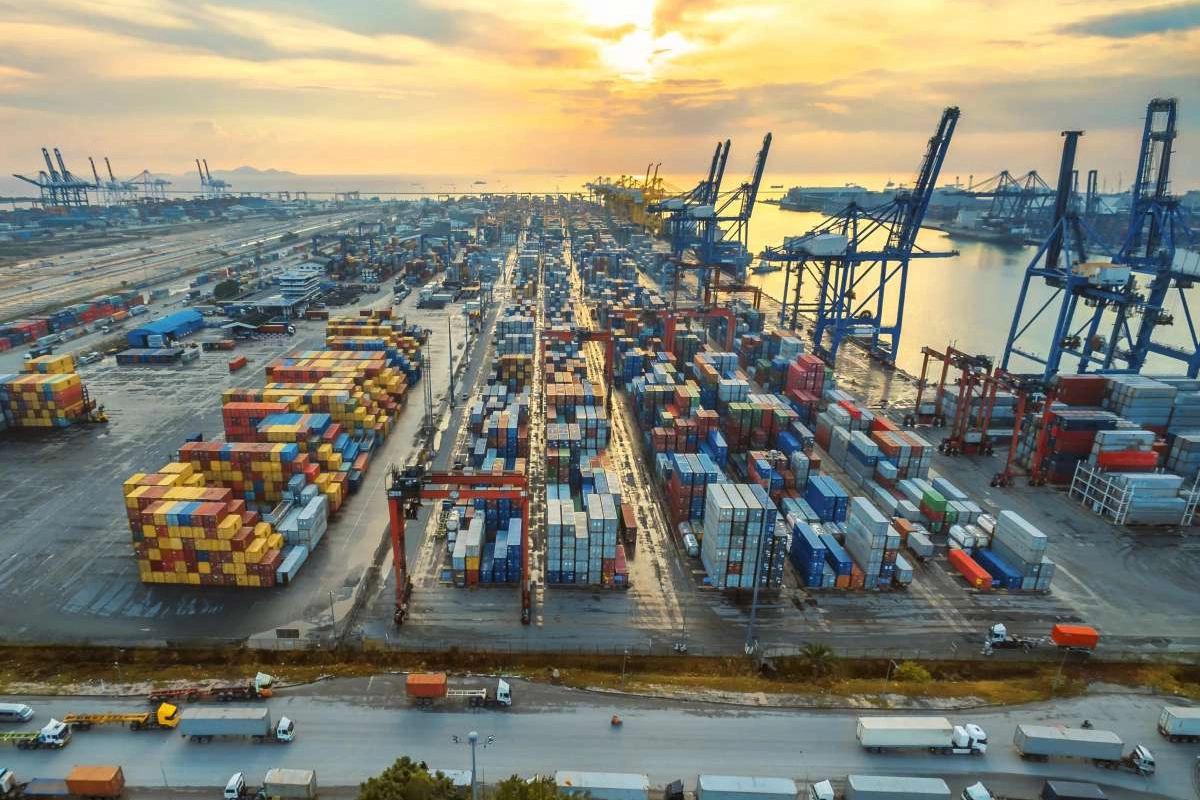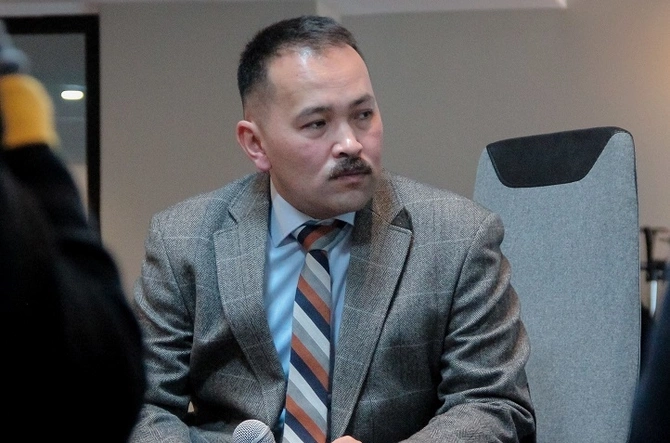
Kazakhstan and Azerbaijan play a crucial role in the Caspian region, and their cooperation opens significant opportunities for enhancing trade ties and developing transport infrastructure.
Image: www.depositphotos.com, Author: viet888456.
The Caspian Post presents an interview with renowned Kazakh financier Rasul Rysambetov.

What prospects do you see for Kazakhstan's economy amid shifting global economic trends and potential risks to the world economy?
Kazakhstan’s economy has substantial potential for sustainable growth, primarily due to its strategic location between East and West and between the Middle East and Europe. In this, Kazakhstan shares a similarity with Azerbaijan, as both countries are advantageously situated and have access to critical markets. Key development factors remain Kazakhstan’s natural resources and substantial investments in infrastructure modernization that the government has undertaken in recent years. In the face of global shifts — such as diverging monetary policies, trade conflicts, and the energy transition — Kazakhstan needs to bolster internal economic resilience and develop non-resource sectors. This approach will help reduce dependency on external factors and strengthen its standing in global markets. Additionally, it is essential to diversify external economic partnerships to minimize risks associated with global uncertainties.
In recent years, Kazakhstan has actively pursued economic diversification. Which sectors, in your view, have the greatest potential for accelerated growth and sustainable development?
The primary growth sectors I see are agribusiness, IT, and logistics. Kazakhstan has vast land resources, which provide opportunities for exporting agricultural products and value-added goods. In the IT sector, there is a high level of interest in digital services and innovations, which receive state-level support. Both private and government venture markets have grown several times over, surpassing $100 million. Kazakhstan’s logistics capacity, particularly under the “Belt and Road” initiative, also presents considerable potential, especially in light of the demand for transit routes between Europe and Asia.
What are the main challenges Kazakhstan faces in attracting foreign investment, and what measures could improve the investment climate?
The key challenges include a lack of transparency in legal enforcement, insufficient legal protection for investors, and infrastructural limitations. To improve the investment climate, it is crucial to continue judicial reforms and enhance investor rights protections. Reducing administrative barriers, improving infrastructure, and offering tax incentives in priority sectors will also create a more appealing environment for foreign investors.
How do you assess Kazakhstan’s prospects for economic integration within the EAEU and other international alliances? What benefits and risks does this pose for the country?
Integration into the EAEU and other alliances provides Kazakhstan access to a large market and facilitates the development of trade relations, which can drive growth in sectors like agriculture and manufacturing. However, risks stem from differences in member countries' economic policies and the possibility of economic dependency on partners. It is essential for Kazakhstan to retain flexibility and advocate for interests that protect its industries and economic sovereignty. In the future, a Central Asian free trade zone could provide the region with a consolidated agenda for entering global markets.
Environmental issues and the “green” economy are increasingly prominent on the global agenda. What steps, in your opinion, should Kazakhstan take to transition toward sustainable development and reduce its dependence on hydrocarbons?
To achieve sustainable development, Kazakhstan should make strong investments in renewable energy sources such as solar and wind power. Implementing incentives for businesses that work with “green” technologies can accelerate the transition to a carbon-free economy. It is also important to refine legislation in environmental regulation to minimize negative impacts on the environment and improve quality of life. Although Kazakhstan remains highly dependent on raw material exports, prioritizing the quality of life, particularly in regional areas, must become a central tenet of state policy.
How do you see the role of Kazakhstan and Azerbaijan in strengthening economic cooperation in the Caspian region? What advantages and challenges could this strategy bring to both countries?
Kazakhstan and Azerbaijan play a crucial role in the Caspian region, and their cooperation opens significant opportunities for enhancing trade ties and developing transport infrastructure. This cooperation strategy can enhance both countries' energy security and stimulate economic growth by enabling more efficient transportation of energy resources and transit goods. Among the challenges is the need to coordinate infrastructure projects and maintain political stability in the region to attract investors.
Share on social media